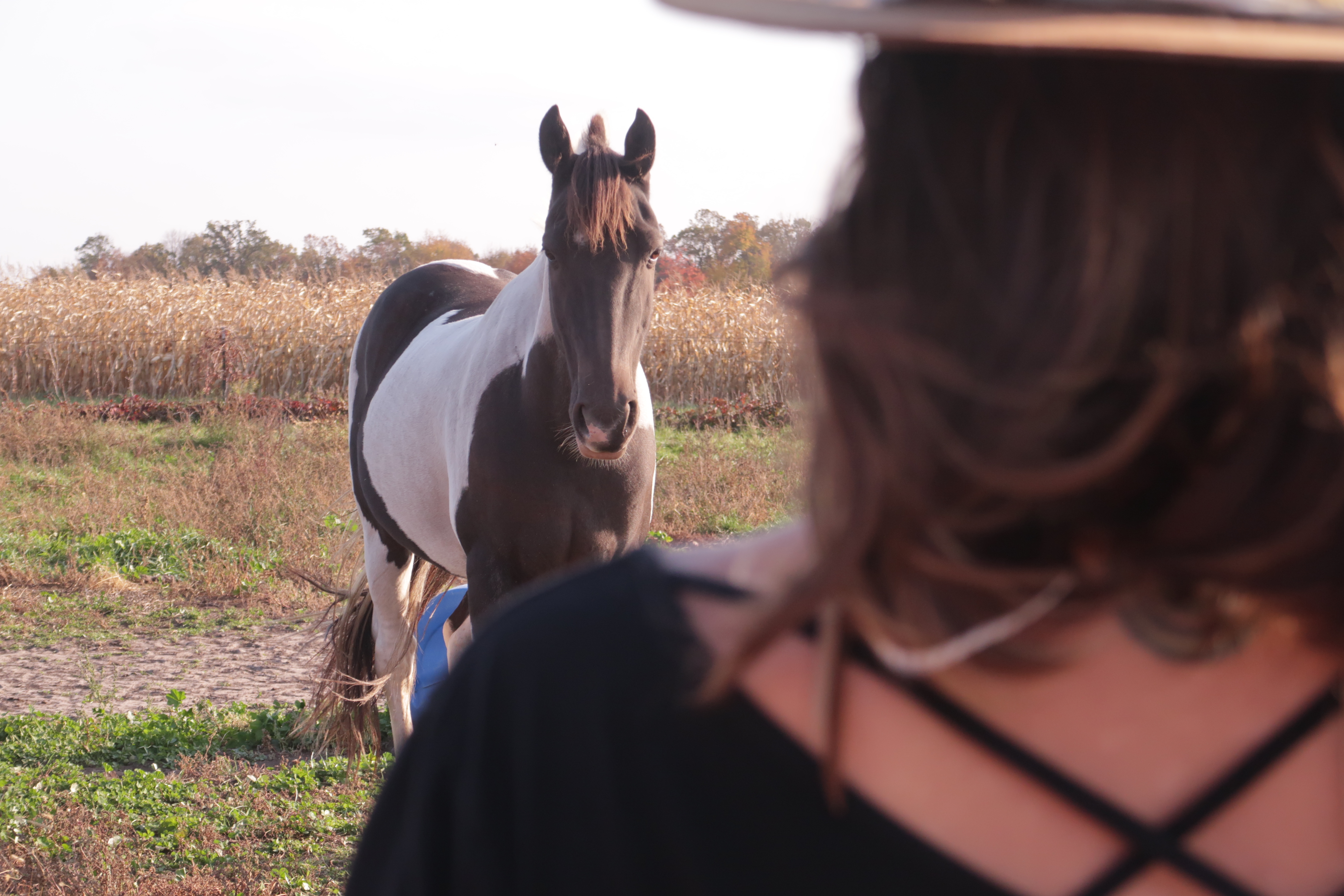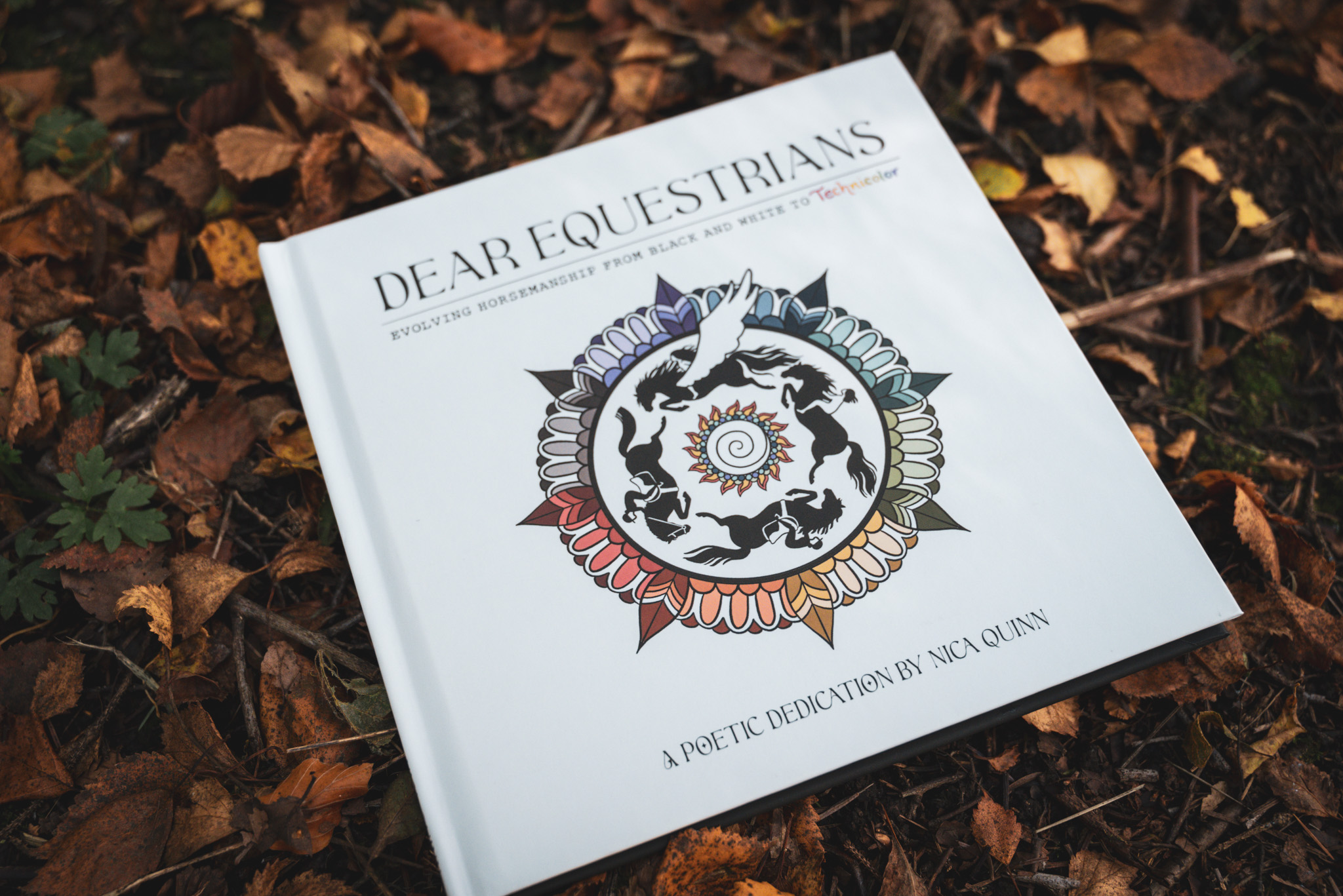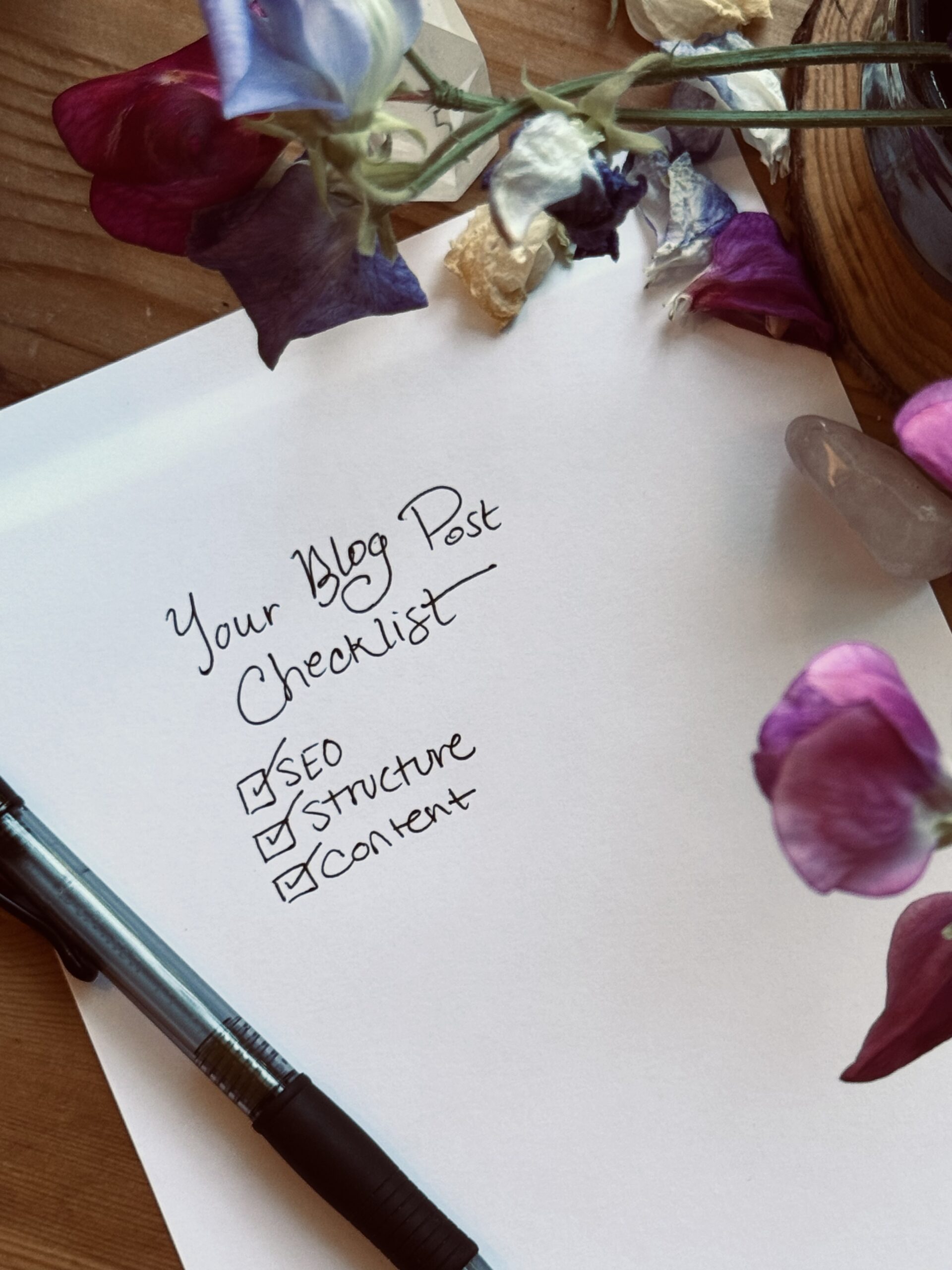
(Illustration from the Awakening with Equines Card Deck written by Kate Neligan)
BALANCE.
This is the theme of life, isn’t it? Creating harmony within ourselves, outside of ourselves, between beings and relationships.
How do we create harmony and balance in our partnership with horses? We want to be partners with our horses, right? We want there to be equality, peace, genuine connection, right? Unfortunately this is just not the case for a majority of people who work with horses.
I’m going to say it… there is a lot of narcissism in the Equestrian World.
Narcissistic (I’m speaking about traits, not the personality disorder) behavior tries to preserve their own self-image to any extent. It’s controlling, manipulative, and one-sided, selfish.
Horse training can be manipulative.
This may trigger some, but I have to say it. I’m NOT saying that training is bad or that there aren’t good ways of doing it, or that we need to just never work with horses again. What I am trying to do is bring a harsh awareness to the very common things that occur in the horse industry and while we may feel like we’re ‘above’ it and always think of the horse, I want us to do some shadow work about our own horsemanship skills and relationships. OOOOFF.
Let’s just go to “natural horsemanship” as is commonly stereotyped into categories of a person who developed methods to train a horse. Parelli is a perfect example as a human and as a method. His ego has boosted him to god status in the horse world (at one point) and while yes, it was an upgrade from traditional abusive horsemanship, instead of physically manhandling horses with harsh tools and brunt force, we’ve moved into subtler physical harm and emotional manipulation.
And I’m not just talking about horses here!
I’m also talking about the humans who believed they were truly “building their horses’ confidence” or “being a leader” or “gaining respect” from their horses.
Think about a normal situation in a round pen with a horse and a human.
Human has horse trapped in a circular container, going around in a loop/pattern, applying pressure (whether hard or soft) to the horse to get them to move in the ways that the human wants. For who’s benefit? The horse? The human? Let’s say human gets horse to canter in a circle, steps back, relieving pressure for a moment, what some may say is “connection” as the horse approaches the human, the horse may see as “relief“.
Human may think, “wow, the horse is joining up to me and we are now partners, I feel connected, look at how well I did, the horse is now my partner.”
Where the horse may think “Phew. The pressure has stopped and apparently it’s a good thing when I come to meet the human after.”
What I’m trying to point at is that WE were told that this is how you bond with a horse (obviously other ways too, this is just the example I’m using).
Can you see other ways that this could be interpreted as a narcissistic relationship if it continues down this path?
The human has goals that truly don’t have much benefit for the horse (like competition), often the training is about being seen as a good trainer, someone who can “get the horse to do what they want.” The horse has to be obedient and if they aren’t “respectful” then they get punished in some way subtle or not.
It’s just interesting to me to reflect on how much behavior like this is encouraged and applauded.
If we truly want to connect with our horses, pressuring them to “partner” with us, or even bribing with food, is not the most authentic way. Yes, I said that too. Positive Reinforcement is also a way of controlling a horse and can be used in manipulative ways.
Also I’m going to reiterate that I’m NOT SAYING THESE METHODS ARE INHERENTLY BAD OR WRONG. I’m really trying to see things from a new and slightly triggering perspective so that we can dive into the darker shadowy sides of horsemanship.
I don’t have answers. I am not a trainer. A behaviorist. A psychologist. A therapist. I am simply floating above and viewing this all from a philosophical perspective.
I know that horses are large domesticated animals and if we want to work with them and have them in our lives then there must be a level of training in order for them to understand and live in our human world, there’s no way around that. Of course we may need to “bribe” them into accepting the farrier, taking medications, etc. It’s like children, unfortunately there are things they can’t quite understand but need to be done in order to thrive in the long run. Horses and children can’t just “do whatever they want” or they won’t mature properly in the society that they are being in raised in. Does that make sense?
I had to swing my own pendulum from one far traditional side, to more middle ground of natural horsemanship, to positive reinforcement, in order to see it from many angles and adjust and become MORE FLEXIBLE in my perspectives. This is the key. Flexibility brings balance.
If you can relax your rigidity in a viewpoint then you will be able to begin to find BALANCE.
This is balance for yourself, everyone’s will look different.
For me, my situation is different from many people. The reason I feel I can step back and look at things in this way is because I don’t at the moment have horses in my every day life and haven’t for the past 4 years, and I’ve learned more about horses in those years than the times I was right alongside them everyday. Now, I only interact on an irregular basis with some horses at the barn I go to, I try to be respectful of the horse AND the owners because I realize that we’re not all on the same page. That’s okay.
My own soul-horse, Merlin, lives thousands of miles from me, but I know he is safe and is not asked to do anything but be a horse in a herd right now. He gets to participate in energetic and spiritual work when people go out to their farm, but he can do it from a distance or interact, up to him.
So when I visited him in fall of 2023, the way he approached and connected with me, I knew it was authentic. There were no expectations of him, no pressure to come, stay, or leave. Nothing. He chose how him and I physically interacted during my time there and it truly felt like a GIFT when we graced me with his physical presence.
This is the point I have come to in my horse journey.
I see my interactions with horses as intentions for deeper connection on an energetic and spiritual level, but also as a gift because horses don’t owe me their time, presence or connection.
On one level, it still is selfish. I want to develop my personal awareness deeper every time I’m around the horses, I want to be able to “use” their ability to reflect our energy in real time to help me in my own growth. It’s selfish AND it’s for the benefit of my horse and human relationships. Sounds a little weird, doesn’t it?
Back to balance.
You cannot be selfless without being selfish in some way. They are a part of the same. An inherent paradox, if you will. You must have compassion, love, kindness for yourself in order to give that to others in an authentic way. Because often times if we think we’re being selfless, it’s usually a shadowy way of fulfilling a need to feel appreciated or needed by others, lacking your own self-acceptance or love.
So what does it mean to have balanced horsemanship?
My personal take on this would be that you can hold multiple perspectives (from education to intuition), tools (physical, emotional, mental), and compassion (for horse and for self) all at once, for different situations. Follow your intuition and listen to the horse.
That may seem like a lot, but there is a lot to balance.
If you can hold two seemingly opposite perspectives in both of your hands and say AND, you are developing your flexibility to see BEYOND duality.
“Out beyond ideas of wrongdoing and rightdoing there is a field. I’ll meet you there.” -Rumi
A non-dualistic approach to horsemanship is the way forward. There is no right or wrong, there is a spectrum that is open to the present moment, to the situation at hand, the beings in the relationships. This may begin with horses but ultimately this is the lessons we are learning in this lifetime as humans.
If you are open and willing, the horses can lead us to that field beyond–they are showing us the way.







